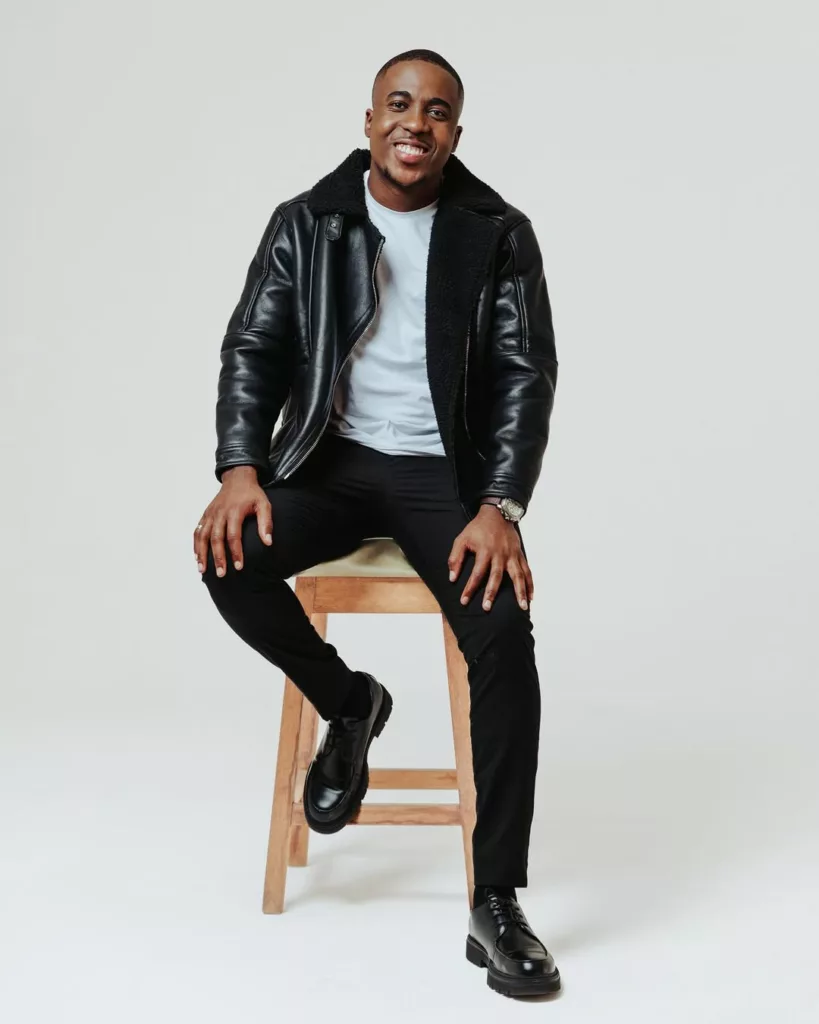Before the numbers and the plaques, there was a teenager with a point to prove. Nkateko Shilowa, known as Clxrity, was 18 when he and Elaine started shaping the songs that would define her breakout: “You’re the One,” “Risky,” and “I/You.” He mixed and mastered, and within weeks of the project dropping, it took off. First number one locally, a million streams in its first month, and then a SAMA Award in 2021 for “You’re the One” as the CAPASSO Most-Streamed Song of the Year Composers Award. “It was surreal and confirmation that we made something that really touched people,” he says now.

That early burst carried a private pressure. Nkateko had just convinced his parents to let him pursue sound engineering instead of accounting or electrical engineering. Delivering a hit was proof to them that it is possible to have a sustainable career in the music industry.
His process is personal. First, he has a conversation to find out more about where an artist comes from, what they love, and what they avoid. Then, they pray. “Before I start sessions, we pray. I’ll then move to the piano, find chords, while the artist works on the lyrics. We’ll go back-and-forth until there’s a solid idea.”
During lockdown, he upped the stakes on musicianship. He taught himself guitar first, then bass in 2023, followed by piano last year. The shift changed how he writes. Now it’s less clicking notes into a DAW (Digital Audio Workstation) and more playing parts in real-time. “My guitar playing is at a good level, but the bass and piano are still getting there,” he says.
His influences reflect his broad listening range across gospel, folk, rock, R&B, afrobeats, and jazz. Nkateko cites US hit-maker D-Mile for the way he builds songs. He also points locally to Kelvin Momo among the artists he admires and hopes to work with. All these point to his own creative process. Before he releases music in a new genre, he learns its principles, then bends the rules to his ear.

If the creative arc sounds measured, the business curve was anything but. “I had to learn quickly. Whether that be publishing, understanding masters, what to sign and what not to sign,” he says. The foundation helped. The classes at Academy of Sound Engineering on copyright meant he’d heard the business language before the phone started ringing.
What followed reflects on the person he is today.
“During COVID, my priorities changed,” he says. He learned to play the guitar to start serving in church, focused on his faith in Jesus Christ, and stepped back from production. He returned last year. “I don’t worry about where the market is going. I work on the music; God will take care of the rest.”
The advice he gives now is practical. Youngsters entering the industry must take the time to learn before releasing anything. Learn FL Studio and ProTools, learn chord progressions, and learn how a genre actually works, so they don’t end up in rooms they’re not ready for.

He admits that technology helps, but shortcuts don’t. AI can draft chord progressions or mimic voices, but people still want authenticity.
Nkateko released a new single under his own name with vocalist Makhanj, leading into an album slated for November 25. Collaboration-wise, he keeps it simple. He works with artists he’s a fan of, and he keeps refining the sound he’s already built.
There’s a temptation to frame his story as a straight-line rise. But the truth is more interesting. It’s years of deliberate practice, a pause for perspective, and a return with a sturdier centre. The result is work that travels further than a trend cycle. And the measure, for Nkateko, is still about making music that moves people.
